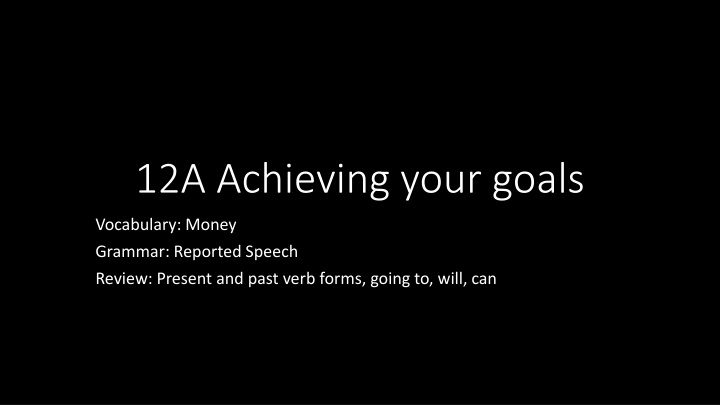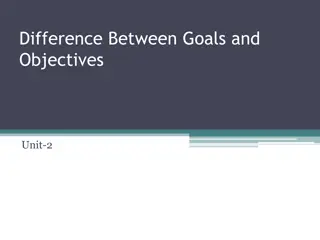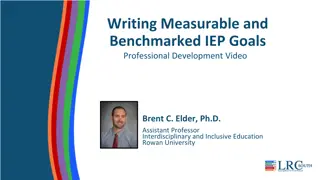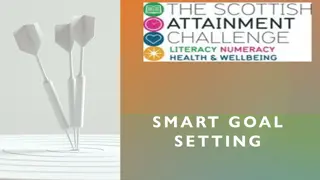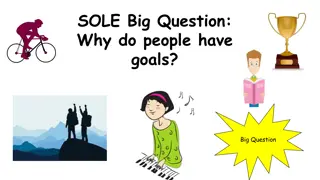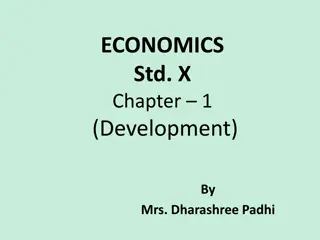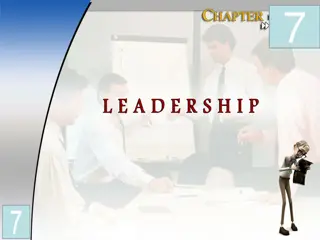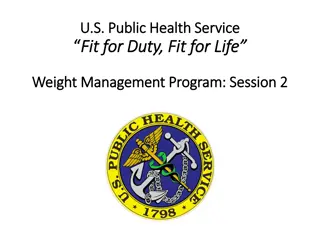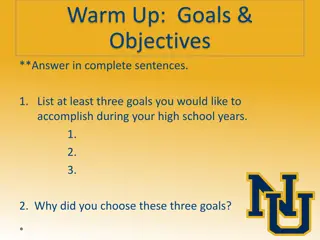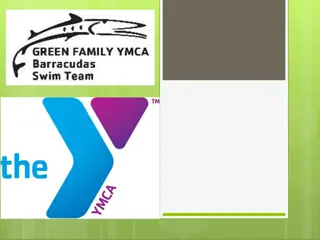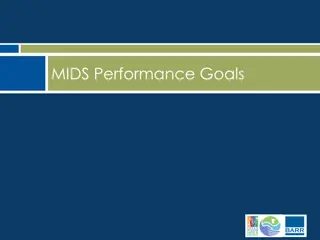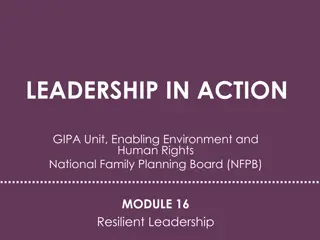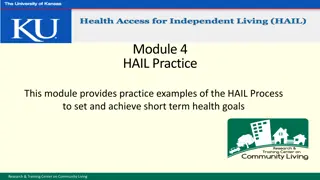12A Achieving your goals
Vocabulary review on money-related terms and grammar focus on reported speech with exercises and examples for practice. Learn how to use direct and indirect speech, change verb tenses, and understand the use of different verbs in reported speech.
Download Presentation

Please find below an Image/Link to download the presentation.
The content on the website is provided AS IS for your information and personal use only. It may not be sold, licensed, or shared on other websites without obtaining consent from the author.If you encounter any issues during the download, it is possible that the publisher has removed the file from their server.
You are allowed to download the files provided on this website for personal or commercial use, subject to the condition that they are used lawfully. All files are the property of their respective owners.
The content on the website is provided AS IS for your information and personal use only. It may not be sold, licensed, or shared on other websites without obtaining consent from the author.
E N D
Presentation Transcript
12A Achieving your goals Vocabulary: Money Grammar: Reported Speech Review: Present and past verb forms, going to, will, can
Vocabulary: Money Please, open your books, p92, and try to do exercise 1 Below, you can find help with new vocabulary Lend money (to someone) give money to someone for a period of time Borrow money (from somene) when you borrow money from a person or a bank and hve to give it back in the future Pay money back give money back to the person you borrowed it from Spend money use money to buy things Save money keep moey sa that you can use it in the future Earn money get money for doing work Win money get money from a lottery, a competition, a horse race, etc. Lose money- a) opposite of win money, b) you can t find money you had Waste money (on something) spend money on something you don t need or want Cost a lot of money pay a lot of money to buy something Get money out (of the bank) take money out of your own bank account
Grammar Reported Speech Please, read the tapescript R12.1, p157. Now, fill in the gaps in exercise 2b), p92. After that, please, read the tapescript R12.2, p157. Put the sentences 1-5, exercise 3a), p92, in the correct order. Match Philip s sentences 1-5 in 2b) to Maureen s sentences a)-e) in 3a). Look at the sentences in 2b) and 3a). Notice how verb changes in reported speech. Then fill in the table in exercise 4, p93.
If we want to say what other people said, thought or felt, we can use the direct or indirect speech. The direct speech: "I like it," he said. "Irene is late," he thought. "I will pass the exam," she hoped. The indirect speech: He said he liked it. He thought that Irene was late. She hoped she would pass the exam. The indirect speech is typically introduced by verbs such as say, tell, admit, complain, explain, remind, reply, think, hope, offer, refuse etc. in the past tense. He said (that) he didn't want it. She explained that she had been at the seaside. If these verbs are in the past tense, we change the following: a) verb tenses and verb forms b) pronouns c) the adverbs of time and place
A) Verb tenses We change the tenses in the following way: Present - past "I never understand you," she told me. - She told me she never understood me. "We are doing exercises," he explained. - He explained that they were doing exercises. Will - would I will come on Sunday," he reminded me. - He reminded me that he would come on Sunday. Can could "I can save some money," he promised me. - He promised me that he could save some money. Am/is/are going to was/were going to "I m going to work for a charity, " she said. She said she was going to work for a charity.
B) Pronouns We have to change the pronouns to keep the same meaning of a sentence. "We are the best students," he said. - He said they were the best students. "They are calling us," he said. - He said they were calling them. "I like your jeans," she said. - She said she liked my jeans. "I can lend you my car," he said. - He said he could lend me his car. Sometimes we have to use a noun instead of a pronoun, otherwise the new sentence is confusing. "He knows them," Kevin said. - Kevin said that the man knew them. This and these are usually substituted. "They will finish it this year," he said. - He said they would finish it that year. "We want these flowers," they said. - They said they wanted the flowers.
C) Time and place The time expressions change as follows. now - then, today - that day, tomorrow - the next day/the following day, the day after tomorrow - in two days' time, yesterday - the day before, the day before yesterday - two days before, next week/month - the following week/month, last week/month - the previous week/month, a year ago - a year before/the previous year Here usually becomes there. But sometimes we make different adjustments. At school: "I'll be here at 10 o'clock," he said. - He said he would be there at 10 o'clock. In Baker Street: "We'll meet here." - He said they would meet in Baker Street.
Please, do the exercises 1/2/3/4/5, p59/60, Workbook. Answers: 1. 2. Waste 6. get 2. a) 2-c b) 2. Money can t buy you love. 3. The hardest thing in the world is to understand tax. 4. I am going to be a millionaire before I m 30. 5. I am working as hard as I can. 3. spend; save 7. win; save 4. borrow; pay 8. spend; earn 5. lend 3-a 4-e 5-b
4. 2. Said3. tell 5. 2. Get 7. Be 6. 2. Going to get promoted then. 3. Was working really hard at that moment. 4. She spent all her money on rent and food. 5. Joel that she couldn t save anything. 6. Were going to move offices the following month. 7. Her journey to work would be a lot longer. 8. Tia that he was leaving the following month. 4. said5. say 6. told 7. said 8. told 3. working 8. leaving 4. spend 5. save 6. move
Thank you for your attention! # hope to see you soon Lecturer Ivana Mila i ivana.milacic@udg.edu.me
